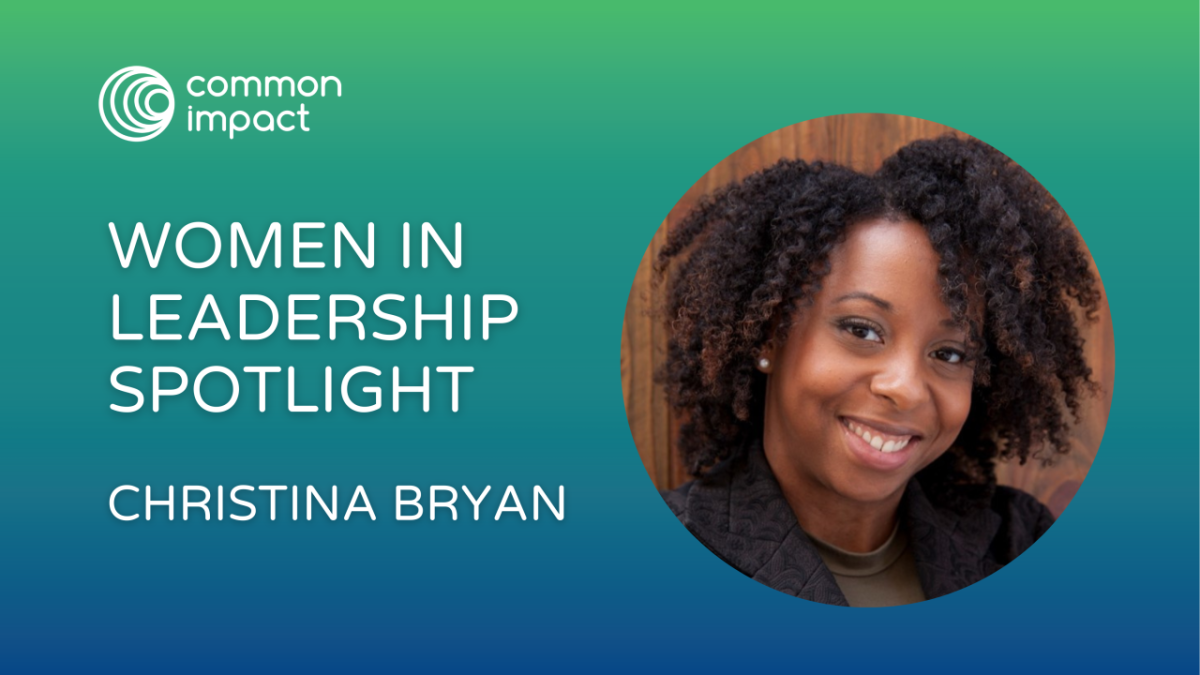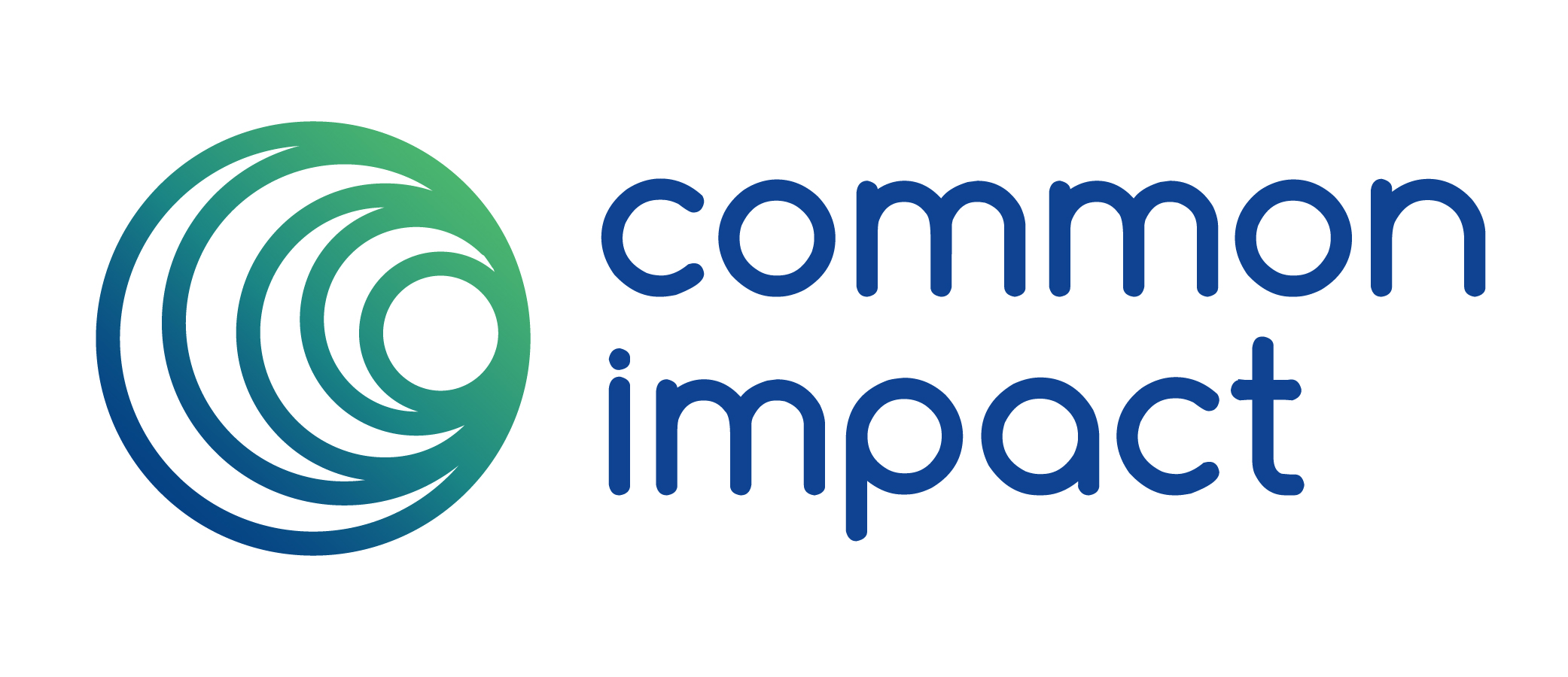Women in Leadership Spotlight: Christina Bryan

We are thrilled to highlight one of our outstanding leaders at Common Impact: Christina Bryan, Chief of Staff to the CEO. Christina developed her passion for creating unique experiences, project management, and business development while working with hospitality giants such as the late Vince Steffan, Hudson Hotel, and Swank Productions.
In this role, she ensures Common Impact’s structures and policies maintain strong program quality and that organizational culture remains effective. She brings her solution-minded approach to the collective goal of fighting for social change and always encourages others with her infectious positivity.
Support a BIPOC-led organization and ask them about the challenges preventing them from effectively delivering their mission.
You have over fifteen years of experience in the consulting, event planning, and social entrepreneurship sector. Tell us about your path to leadership. What inspired you to get into this work?
Looking back, I see a pattern of volunteerism and social impact work throughout my upbringing and career. Not knowing skills-based volunteering was the actual term for it, I had worked with various nonprofits throughout my career, helping them build capacity through crafting membership and fundraising strategies, creating execution and operational plans, or putting on galas to help them further their mission. In 2018, I no longer felt fulfilled by the events industry. I wanted to center my career on more purpose-focused work, which inspired my transition into corporate social responsibility and social impact. While going through a career transition, I brought a great deal of experience, confidence, integrity, and passion to my new role, which translated very nicely into my leadership role at Common Impact.
You describe your role as Chief of Staff as the connector of culture, operations, and strategy. How has the workplace and work culture shifted during the last few years, and what should nonprofits do to retain and motivate their talent?
There isn’t a single driver when it comes to retaining talent. A diverse workforce means people will have different interests and motivators for what gets them out of bed in the morning, especially when so much of our work culture has shifted to remote work. So my first recommendation would be to talk with your staff about what they need to be happier at work. Notice I said “happier” and not “more effective.” A recent article from “Great Place to Work” noted that people who felt a sense of belonging at work were 5 times more likely to want to stay at their places of employment for a long time. Now more than ever, our connection to what we do and how well we do it is directly tied to how we feel at work. My second recommendation would be to take that feedback seriously. Create a culture where employees feel heard. Develop an action plan for short-term and long-term changes your organization is committed to making to achieve your employee engagement goals.
More businesses are investing in and implementing DEI practices. Still, we have a long way to go in eliminating obstacles to career development and promotion paths for BIPOC individuals. What can organizations and companies do to promote DEI and create equitable spaces and opportunities for BIPOC employees?
We can’t talk about creating equitable paths to promotion for BIPOC employees without acknowledging places in that process where favoritism and discrimination show up. As a certified leadership coach to women of color, I’ve seen barriers like affinity bias, lack of recognition, tokenism, and exclusion, just to name a few, take a toll on them as employees and as human beings. Organizations and companies should start with an honest assessment of their current practices by asking the following questions; How many BIPOC employees have left the company in the last 18 months? How many have been promoted in that time? Is the path to promotion and raises clearly defined for everyone? What has my company done to minimize bias in the manager/direct report relationship? What kind of specialized support has my company offered BIPOC employees interested in moving up the career ladder? This is just scratching the surface, but a great place to start analyzing how best to support BIPOC employees is to be self-aware of where you might fall short.
What actions can corporate professionals, social entrepreneurs, or philanthropists take to support and amplify the work of Black-led organizations year-round?
This is an opportune moment to promote skills-based volunteerism. Support goes beyond writing a check to BIPOC-led organizations or buying from black-owned businesses for a month. Many BIPOC-led organizations and businesses lack the basic infrastructure they need to do their work all year round. Touch base with a BIPOC-led organization and ask them about the challenges preventing them from effectively delivering their mission. This initial conversation is crucial in minimizing a savior complex or disparate power dynamic between you and the organization. The support shouldn’t depend on what you’re interested in doing but on the organization’s needs. If your skill set doesn’t align with their needs, share your networking and make connections.
About Common Impact
Common Impact is a national nonprofit that works to build a society in which individuals and businesses invest their unique talents towards a shared purpose: strengthening the local communities in which we live and work. Founded in 2000, Common Impact has partnered with Fortune 500 companies and hundreds of the country's leading nonprofit organizations to create transformational change through skills-based volunteering. Learn more about Common Impact's services, impact, and clients.

